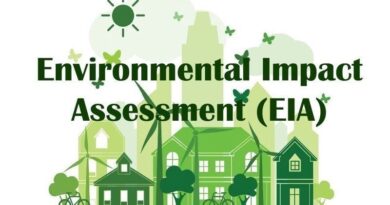500 experts write to environment ministry, seek withdrawal of draft EIA
Environment Impact Assessment (EIA): Ever since the notification was issued in March, the ministry has received suggestions through nearly 17 lakh e-mails, including several objections.
Over 500 academics, scientists and researchers from various educational institutes have penned an open letter to the Union environment ministry enumerating their concerns with the draft Environmental Impact Assessment notification 2020, which has drawn ire from multiple quarters for its scheme to ease business by diluting regulations that protect the environment and safeguard the rights of people affected by prospective projects.
The letter was initiated by PhD students from different institutes. Among the signatories are institutes such as Indian Institute of Science, Indian Institutes of Science Education and Research, Indian Institutes of Technology (IITs), National Centre for Biological Sciences and Wildlife Institute of India.
Environmental groups have opposed EIA draft notification citing its contentious clauses. The clauses include the one pertaining to the regularisation of projects, which violated the EIA Notification, 2006, by starting constructions before environmental clearance or by expanding their capacity. The draft also proposes a shortening of the time for public hearings, which offer people affected by projects the opportunity to understand them and give their consent for them.
The Open Letter
An open letter to the Ministry of Environment, Forests and Climate Change
September 2, 2020
We, a group of academics, scientists and researchers engaged in various capacities, express our deep concern regarding India’s sustainable future in the light of the Draft Environmental Impact Assessment (EIA) Notification, 2020 (hereafter ‘Draft Notification’), recently proposed by the Ministry of Environment, Forests and Climate Change (MoEF&CC), Government of India.
As citizens of this country, many of us have sent our feedback and comments on the document by the specified deadline, 11th August, 2020. However, limited circulation and publicity of the Draft Notification compounded by a lack of its availability in most Indian languages hindered true and inclusive public participation. Moreover, many traditional communities of rural India, often most affected by unappraised developmental projects, also lack the technology and access to take part in such an exercise. Considering that the Central Government is currently restrained by Karnataka High Court from publishing the final draft till 7th September, 2020, we find this time opportune to present our chief concerns on the Draft Notification with this press release to further a wider public debate on the subject.
Overall, we have come to the conclusion that the Draft Notification, in its current form, is likely to seriously threaten our country’s ecological and environmental security. The Draft Notification neither adheres to the fundamental objectives of its parent legislation, the Environment (Protection) Act, 1986, nor does it align with our country’s commitments under various international agreements and conventions.
Also Read: All You Need to Know About EIA-2020
The existing EIA 2006 Notification itself has been deemed insufficient in meeting its stated aims. The undermining of environmental safeguards by non-compliant and unmonitored industries and practices has often led to environmental disasters including overwhelming loss of biodiversity, human lives and livelihood, as happened recently with the Vizag gas leak and the Baghjan oil-well blowouts. Rather than strengthening the EIA process, the Draft Notification tends to promote industrialisation at the cost of the environment. Some of our major concerns are that this Draft Notification:
1. Legitimises ex post facto environmental clearances and encourages industries with no prior clearance to commence operations and eventually get regularised by paying a penalty amount (Clause 22) even after causing an irreversible damage to the environment, which is contrary to the precautionary approach of EIA regulations.
2. Mandates the baseline data collection period to prepare an EIA report for all projects as only one season (except for river valley projects), wherein additional data from the monsoon season is required only if prescribed by the Appraisal Committee (Clause 13(2)) – this is severely inadequate for evaluating the seasonal impact of the project on ecology and the environment.
3. Includes solar thermal power plants, extraction of ordinary earth for linear projects, and maintenance dredging in the list of projects that do not require prior environmental clearances (Clause 26). Without proper understanding of the possible impacts of these projects, when carried out on large scales, such exemptions may negatively affect existing terrestrial and aquatic ecosystems, hamper wildlife movement and fragment habitats.
4. Reclassifies many potentially ecosystem-damaging and even some highly polluting red category industries as ‘B2’ category (p. 37-45, Schedule), thereby exempting them from scoping (Clause 12(1)) and public consultations (Clause 14(2)) and allowing approval based on Environmental Management Plan Report instead of EIA Report (Clause 13(11)).
5. Exempts ‘A’ and ‘B1’ category projects, including many projects listed in red category (such as thermal power plants (p. 37-45, Schedule)) from having to conduct public hearings for modernisation and expansions below 50% (Clause 14(2)) and reduces the minimum notice period for furnishing a public response from an already insufficient 30 days to 20 days (Appendix-I(3)), both of which severely compromise public consultation processes.
6. Allows only project proponents and government authorities to officially report cognisance of violations (Clause 22(1)) and non-compliance of conditions (Clause 23(1)), curbing the rights of any other concerned or affected person.
7. Dilutes post-clearance monitoring by reducing the mandatory compliance report submission by project proponents from half-yearly to yearly (Clause 20(4)).
With the rise in pollution-related health impacts already causing high mortality in India, the importance of having stronger regulations and overseeing polluting industries cannot be overstated.
A report by the Ministry of Earth Sciences, Government of India, published in June 2020, pointed out that rapid changes in India’s climate will worsen the challenges facing us by affecting the country’s biodiversity, food, water, and energy security as well as public health. Since 2016, India has slipped 27 places from its global Environment Performance Index (EPI) rank in 2020, and is now ranked 168 out of 180 countries. Our country’s declining environmental performance mandates immediate pro-environmental and ecologically sound developmental measures, which are not addressed by this Draft Notification.



